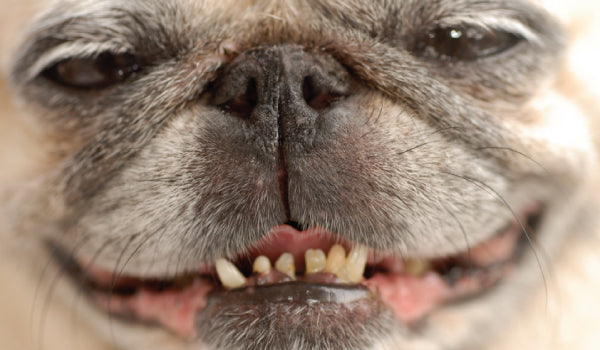If your dog is grunting when she breathes, it could be a sign of respiratory distress or an underlying health issue.
Common Causes Of Grunting In Dogs
Dogs grunting when they breathe can be caused by physical exertion or overexertion, leading to labored breathing. Nasal congestion or obstruction can also result in grunting sounds. Additionally, respiratory infections and allergies can be potential culprits for the grunting in dogs.
These conditions can cause discomfort and difficulty in breathing for our furry friends. It is important to monitor their breathing patterns and consult a veterinarian if you notice any abnormal grunting or changes in their respiratory behavior. Providing a comfortable environment and ensuring proper ventilation can help alleviate these symptoms.
Regular vet check-ups and prompt treatment of any underlying respiratory issues can help keep your dog healthy and free from grunting episodes. Understanding the common causes of grunting in dogs can help us provide the necessary care and attention to ensure their well-being.
Grunting As A Symptom Of An Underlying Health Issue
Grunting when breathing in dogs can be a symptom of an underlying health issue. One potential cause is Brachycephalic Airway Syndrome, which can lead to grunting sounds as a result of airway obstruction. Congestive heart failure is another condition that may cause dogs to grunt while breathing.
This occurs when the heart cannot pump blood effectively, leading to fluid buildup in the lungs. Additionally, obstructive tracheal collapse can contribute to grunting sounds in dogs. This condition involves the collapse of the trachea, making it difficult for dogs to breathe properly.
It’s important to monitor your dog if they are experiencing grunting when breathing and consult with a veterinarian to determine the underlying cause of this symptom. Understanding the potential health issues associated with grunting can help ensure your dog receives the necessary care and treatment.
Behavioral And Environmental Factors Influencing Dog Grunting
Grunt-like sounds in dogs often stem from a variety of behavioral and environmental causes. Anxiety and stress can trigger episodes of grunting, as can excitement or anticipation. Environmental factors, including smoke or strong odors, may also lead to temporary grunting in dogs.
These triggers can elicit physical responses in dogs that manifest as grunting when they breathe. While it is important to be attentive to any changes in your dog’s behavior, occasional grunting may not necessarily indicate a serious underlying issue. However, if the grunting is persistent, accompanied by other concerning symptoms, or if you have any doubts at all, it is always best to consult with a veterinarian.
They can assess your dog’s health and provide guidance on how to address any potential concerns related to grunting.
When To Consult A Veterinarian For Dog Grunting
If your dog is grunting when she breathes, it is important to know when to consult a veterinarian. You should seek professional examination if the grunting symptoms persist or worsen over time. Additionally, if your dog experiences concurrent symptoms such as coughing or difficulty breathing, it is necessary to seek veterinary care.
Early intervention for underlying health conditions is crucial for your dog’s wellbeing. By consulting a veterinarian, you can ensure that any potential health issues are addressed promptly and effectively. Remember, it is always better to be cautious when it comes to your dog’s health, and seeking professional help is the best way to ensure their safety and happiness.
Home Remedies And Preventive Measures To Help Reduce Dog Grunting
Many dog owners become concerned when they notice their furry friend grunting while breathing. Fortunately, there are some simple home remedies and preventive measures that can help reduce dog grunting. Keeping the dog’s environment clean and free from potential irritants is crucial.
Regular exercise can also improve the dog’s respiratory health by strengthening the lungs. Additionally, utilizing humidifiers or vaporizers can help alleviate nasal congestion and make breathing easier for your dog. These remedies and preventive measures can provide relief and comfort for your dog, ensuring their overall well-being.
Taking proactive steps to address dog grunting can contribute to a healthier and happier canine companion.

Credit: nusentia.com
Conclusion
If your dog is grunting when she breathes, it’s essential to pay attention to this symptom and seek veterinary care if necessary. Grunting can indicate a respiratory issue, such as an obstruction or infection, or it could be a result of other underlying health problems.
It’s crucial not to ignore these signs, as they could worsen over time and potentially endanger your dog’s well-being. By observing any other symptoms that accompany the grunting, monitoring your dog’s behavior, and following the advice of a professional veterinarian, you can identify the cause and provide the appropriate treatment.
Remember to maintain a safe and clean environment for your dog, provide regular exercise, and keep up with routine check-ups to help prevent any respiratory issues in the first place. Your furry friend’s health and comfort should always be a top priority.
